
On July 18, Russia suspended its participation in the “grain deal,” which allowed for the safe shipment of Ukrainian grain through ports in the Black Sea. Despite Russia's statements, the “grain corridor” has not been operational since late June. Ukraine has nevertheless managed to sell half of the required volume, as Pavlo Koval, the general director of the Ukrainian Agrarian Confederation, told The Insider.
Koval's statement was corroborated by an anonymous participant in Ukraine's grain trading market. Additionally, Dmytro Barinov, the deputy head of Ukraine's Sea Ports Authority, emphasized that the repercussions of terminating the grain deal would not only affect Ukraine, but also result in price increases in countries dependent on the supplies, potentially leading to world hunger.
According to Koval, Russia stopped inspecting ships intending to pass through the “green corridor” after June 29.
“Yesterday at 11:00 Kyiv time, a vessel departed, and the Russian side believes it to be the last one. In reality, the grain corridor has been non-operational for two weeks, and prior to that, it functioned at about one-fifth of its capacity. Initially, we could handle 5-7 vessels per day for loading, but as time passed, the number decreased to less than two or even one vessel per day until June 29.
After June 29, ships did not proceed due to Russia's decision not to inspect them. A queue formed in the Bosphorus, and in the Turkish section, there is a process to determine which vessels can enter the territorial waters of Turkey and Ukraine. A joint group from Russia, Ukraine, and Turkey inspects the vessels for any prohibited items, and then they proceed for loading at one of the ports in Odesa.”
Koval also mentioned the long-standing issue with the ammonia pipeline to Odesa, which has been out of operation for a lengthy period of time. According to Reuters, there were secret talks between Russian and Ukrainian delegations in the UAE on November 17, 2022, to discuss reactivating the ammonia pipeline from Togliatti to Odesa. Before the war, this pipeline transported over half of Russia's ammonia exports. However, since the full-scale invasion of Ukraine on February 24, 2022, the pipeline has remained inactive. At the time of the report, it was unclear if the talks yielded any progress.
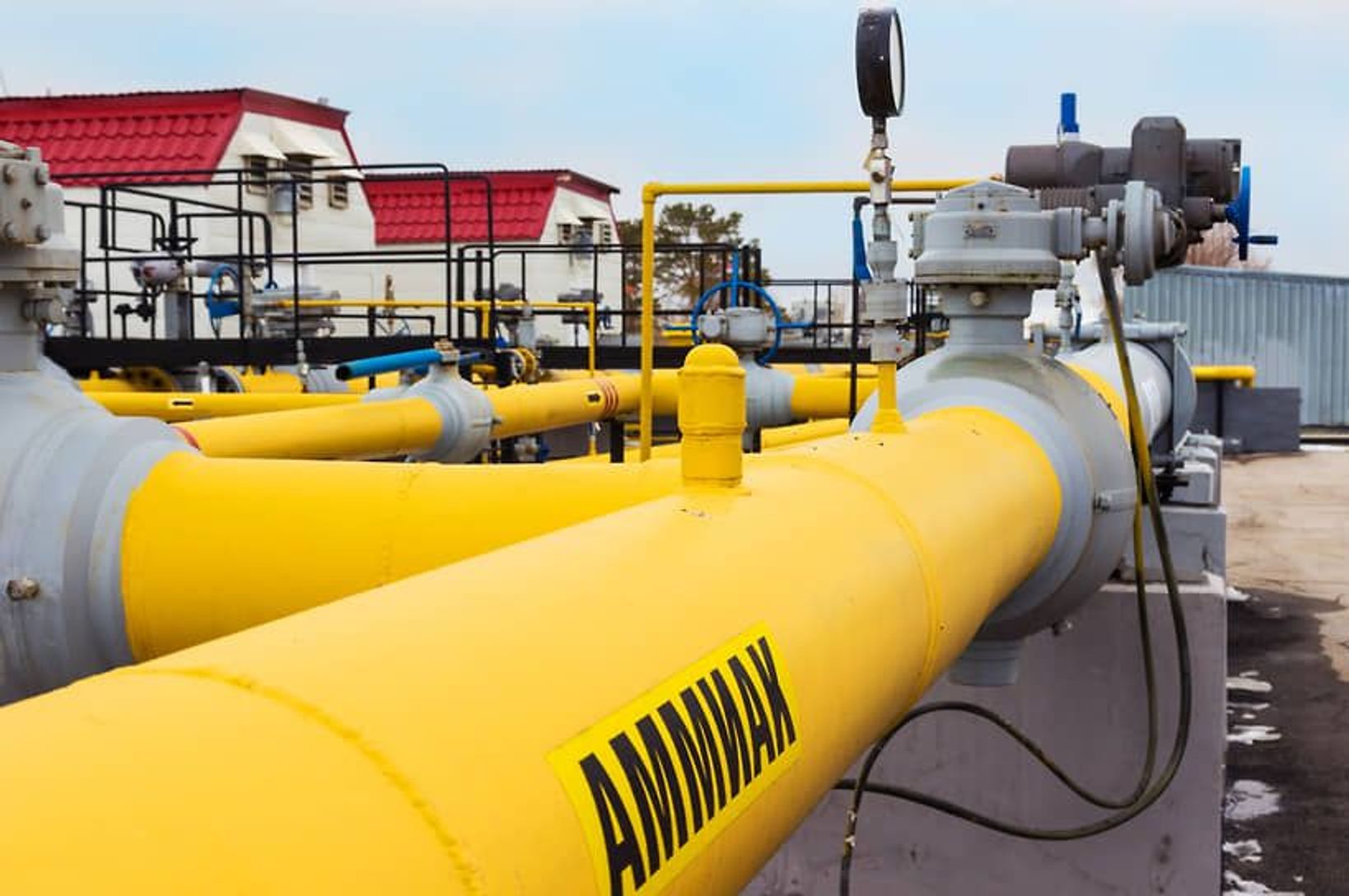
While the grain deal was renegotiated on November 17, there were hopes that ammonia supplies through the pipeline could resume. The parties ultimately couldn't reach an agreement on the terms for its resumption, despite the Russian side initially seeking to include this condition in the deal.
“Until recently, only two grain ports were operational, with one of them being the Black Sea port. During the negotiations on the grain agreement two months ago, the Russian side proposed an extension of 60 days instead of 120 days, and they also brought up the issue of the ammonia pipeline to Odesa. The pipeline connects to the port of Yuzhny, where there are facilities for compressors and tanker transshipment. However, the port has been out of operation for an even longer period.”
According to Koval, in the absence of the “grain corridor,” the flow of grain has been redirected to European countries through railroad and road routes.
“The reasons and methods behind the passage of 1-2 ships in the past two months remain uncertain. It seems like the Russian side is adopting a random approach, randomly picking out ships from the queue. As the old season of 2022-2023 nears its end, there is minimal enthusiasm for vessel loading. Operations have been sluggish, with 3-4 vessels being loaded per week. Additionally, a portion of the grain flow has been redirected through 14 railroad crossings to European countries, while some has been transported via automobile crossings and the Danube River.”
Koval claims that Russia has taken a pause in the grain deal intentionally ahead of the crop supply from the beginning of the 2023-2024 season.
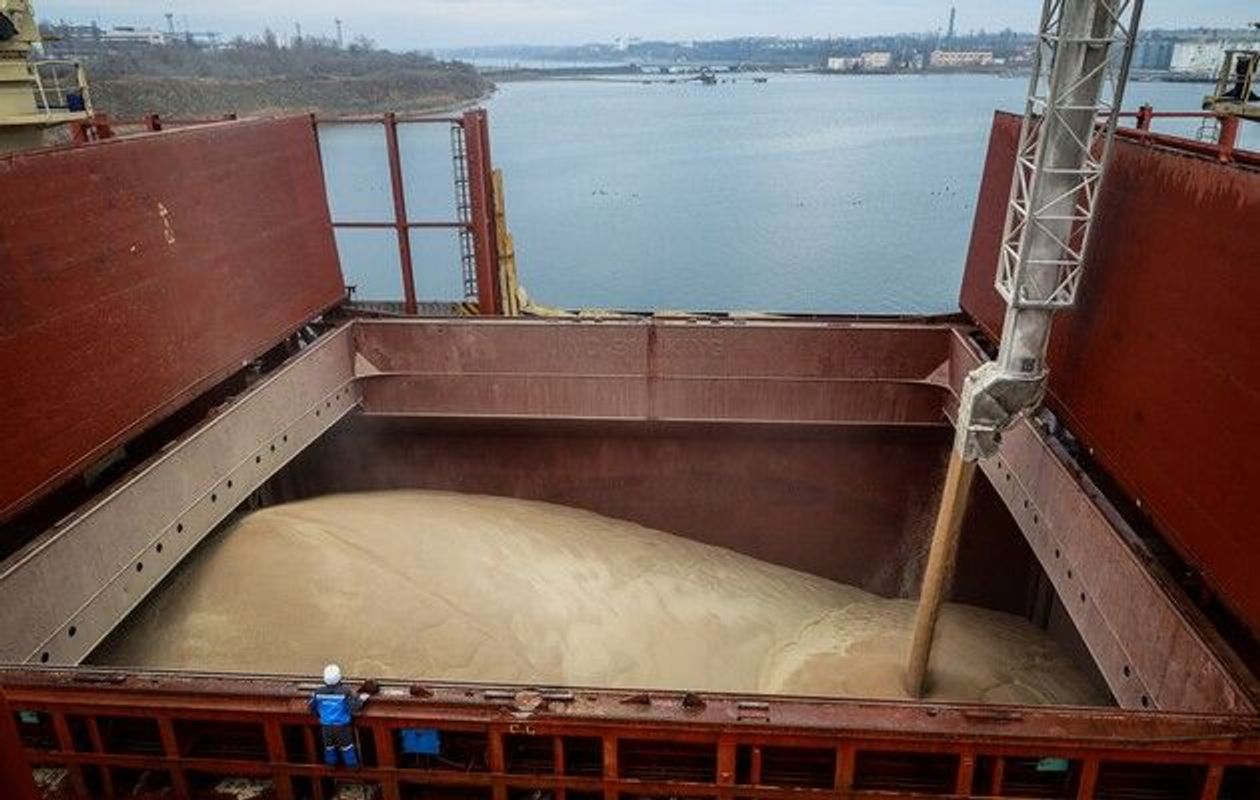
“I believe Russia's recent suspension is a strategic move ahead of the 2023-2024 crop supplies. Similar tactics have been employed in the past, such as last year, when the grain agreement was signed on July 22, and on July 23, the ports of Odessa mentioned in the agreement were shelled.
A couple of months later, Russia attempted to withdraw from the grain agreements but faced resistance from Turkey, leading to an extension of the deal.”
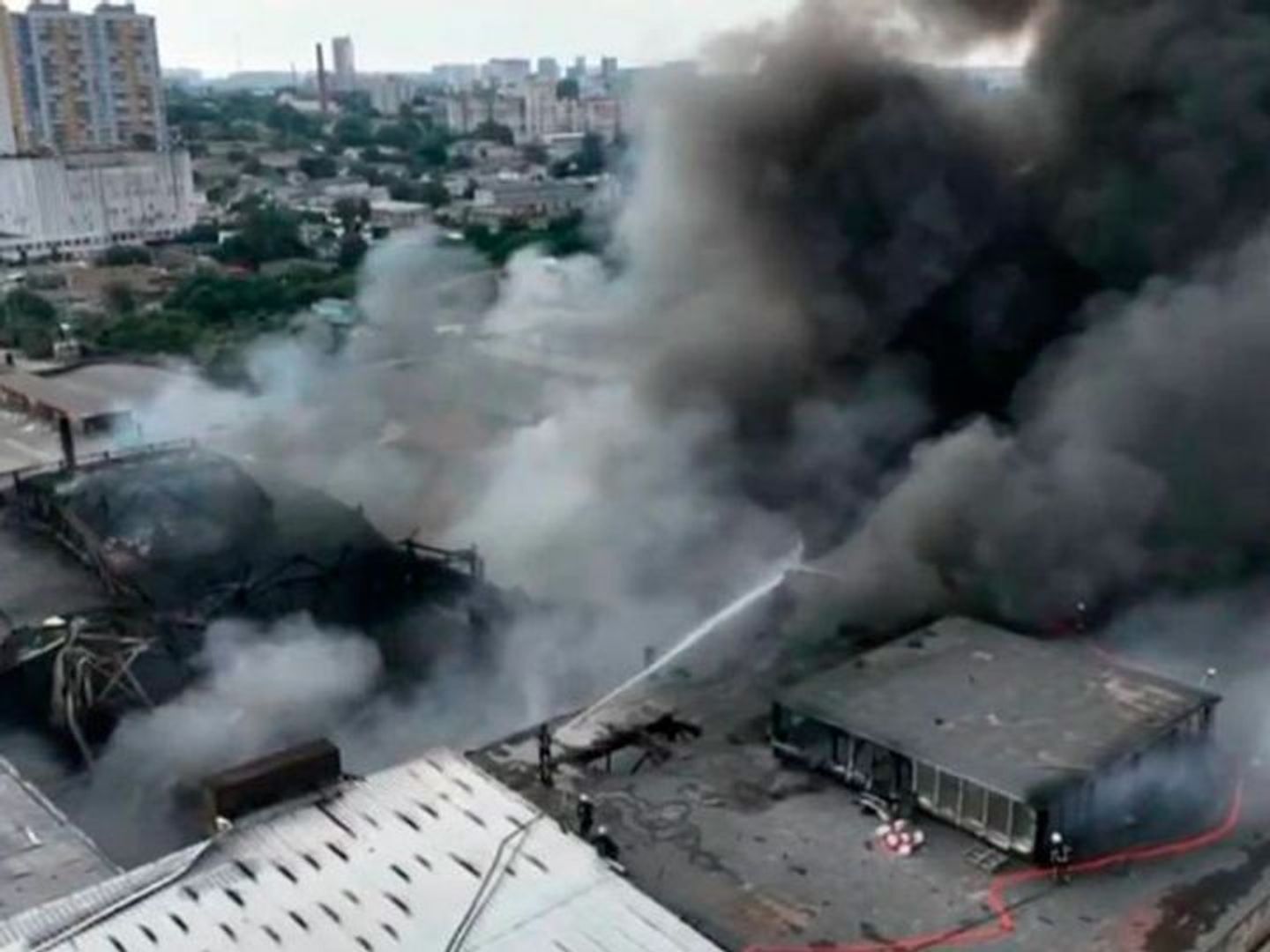
Odesa's port was shelled the day after Russia and Ukraine agreed on grain exports
“Information then surfaced about more secret additional agreements and protocols, where Russia demanded not 120 days, but three years on its terms: including insurance and cooperation with Rosselkhozbank [Russia’s agricultural bank – The Insider], agricultural machinery and parts supply, and the operation of vessels in Russian agrarian zones in European ports. There are only six items in the additional agreements and one of them is the ammonia pipeline. And only this was put on the negotiating platform in the public space – a day later, there were four missile and artillery attacks on the ammonia pipeline's compressor station on the border of Kharkiv region and Russia.”
Koval clarified that the official end of the deal is Monday, July 17. However, he believes that Russia is linking two events –the extension of grain agreements and the recent explosion on the Crimean bridge.
“There was a missile raid on Odesa's port infrastructure ten days before the grain agreement expired, which aligns with Russia's typical style. Today marks the last day of the agreement, and simultaneous events are unfolding on the Crimean bridge. While our official military and political authorities have not attributed these events to Ukrainian actions, Russia appears to link the two - the extension of the grain agreement and the occurrences on the Crimean bridge. Two spans are suspended in the air, and they’re inspecting something else as well.
These events are probably not happening by chance. Should Ukraine react with its grain flows somehow? We worked without any ‘grain corridors’ until June 22 last year. We’ll try to adjust and work accordingly. There are still options and potential to expand agricultural exports without ‘grain corridors.’
Considering expert assessment and the logic (or 'illogic') of Russian behavior, it appears that the matter of the 'grain corridor' isn't yet closed. We can anticipate that they'll allow ships in again, as they've done before. This situation provides Russia with a platform to publicly negotiate and encourage Ukraine's military and political leadership to participate in talks.
I believe this negotiation tool hasn't been fully utilized, as shown by past instances, where consultations led to the reextension of the corridor after three days. Erdogan's recent interview, where he stated that Putin agreed to extend the 'grain corridor,' adds credibility to that assumption. Erdogan isn’t a child – he wouldn’t make such statements without prior consultation. The subsequent bombing of the bridge, which happened the following night, again reinforces the link with the extension of the grain agreements.”
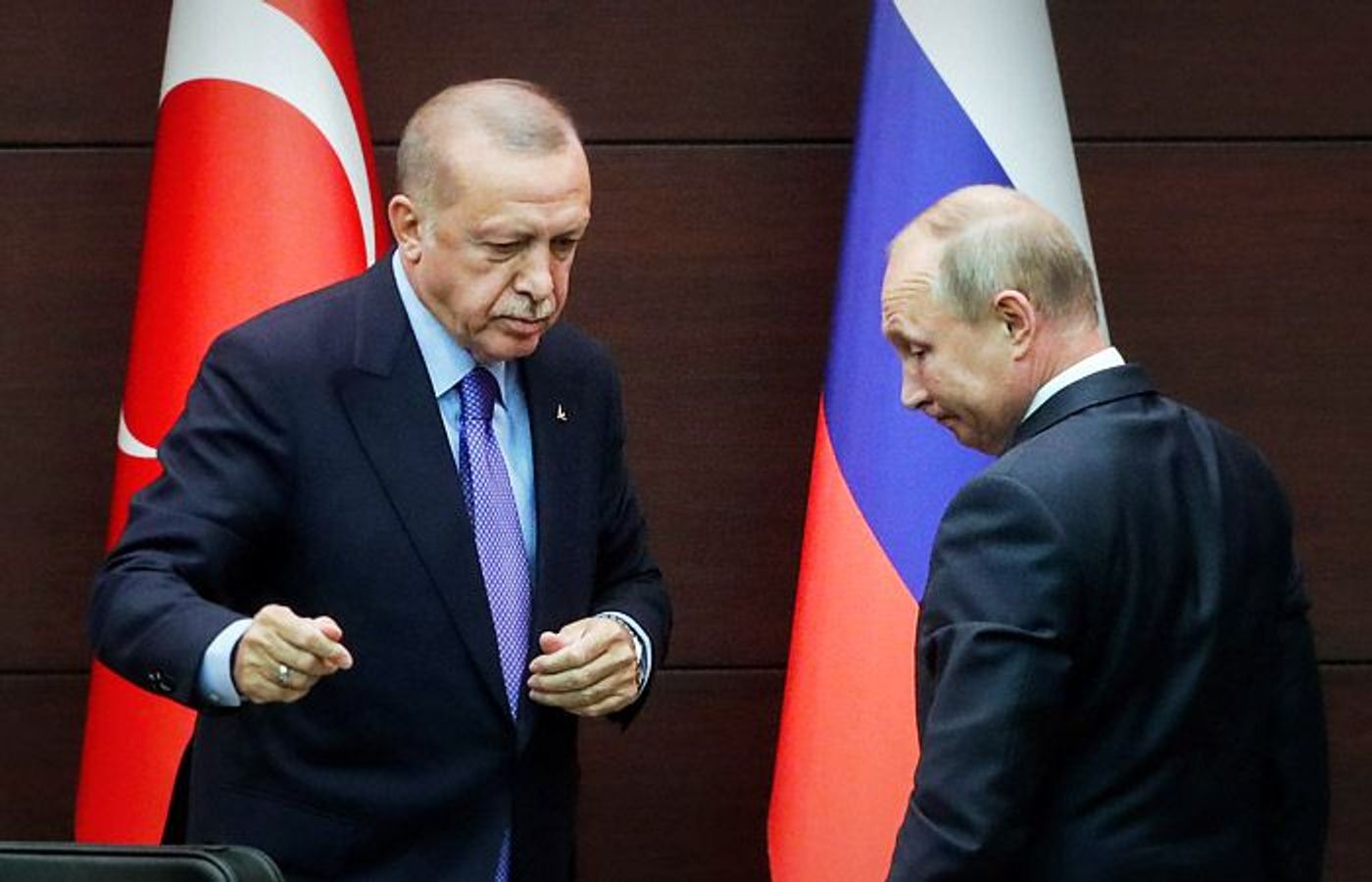
“According to Erdogan, Putin has tentatively agreed, but we are awaiting Putin's official visit to Turkey in early or late August. Although August is not the peak of exports, it should be sufficient. Most likely, consultations will take place, and options will be explored to extend the deal. A letter has been delivered to Putin through Rosselkhozbank to consider and expand options for extension. Russia is currently attempting to increase rates, but their MO remains consistent, and those seeking linear logic may be mistaken. There appears to be a more complex and non-public game at play here. The 'grain corridors' are not forgotten, and there might be significant geopolitical changes.”
The general director of the Ukrainian Agrarian Confederation also drew a comparison between the current situation and Putin's frequent statements on nuclear weapons and Russia's nuclear blackmail tactics.
“Putin acts similarly in the grain agreements and in nuclear blackmail. This is also one of the elements of the hybrid war in Ukraine. Similar to Xi Jinping's visit, where Putin temporarily halted the nuclear weapons issue, but later promised to transfer warheads to Belarus, we observe a similar pattern here – he engages with Erdogan in prior discussions, and then formally withdraws from the grain agreements.”
Putin has made regular statements about nuclear weapons, especially following the outbreak of the war in Ukraine. He mentioned that Russia possesses “various striking capabilities” and accused the West of pushing hostilities towards Russian territory while engaging in “nuclear blackmail.” Putin also asserted that Moscow would use “all means at its disposal” if threatened. In announcing Russia's “suspension” of the START Treaty [one can only withdraw from the treaty; there is no provision for “suspension” under its terms – The Insider], he highlighted the United States' development of new types of nuclear warheads. If the US tests new types of nuclear weapons, Russia will do the same, he stressed. Former German Chancellor Angela Merkel expressed concerns and emphasized the need to take Putin's nuclear threats seriously in September 2022.
Separately, Koval highlighted that Russia has fewer and fewer allies:
“Russia doesn't have many allies right now. If it acts this way with China, Erdogan, and the UN, something suspicious might be happening. We'll wait for official reports, but it's likely that talks and corridors will be extended in some ways.
We are surprised by Russia's actions in the Black Sea agreements. The speakers sharing this information today may not speak for the official position. Turkey, Ukraine, and the UN are waiting for the official letter mentioned by Peskov and Zakharova. We need to wait, and then there will be an official reaction.”
Dmytro Barinov, the deputy head of Ukraine's seaport administration, also told The Insider that almost all ports have been blocked since the war began, and inspections of ships by Russia have been extremely poor.
“Since the beginning of the full-scale war, all ports, except for the Danube ports, have been blocked, and foreign crews haven't shipped grain from the ports of 'Greater Odesa' and the Mykolaiv region for six months. Only the Danube ports have remained operational, steadily increasing their capacity each month. Before the war, the Danube ports weren't involved in grain shipments, but with the efforts of businesses, the Ministry of Infrastructure, and our organization, the Sea Ports Administration of Ukraine, shipments went from zero in March 2022 to 400 thousand tons in April, 800 thousand tons in May, and 1.3 million tons in June. In May of this year, a remarkable record was set as three ports shipped 3.1 million tons in a month.”
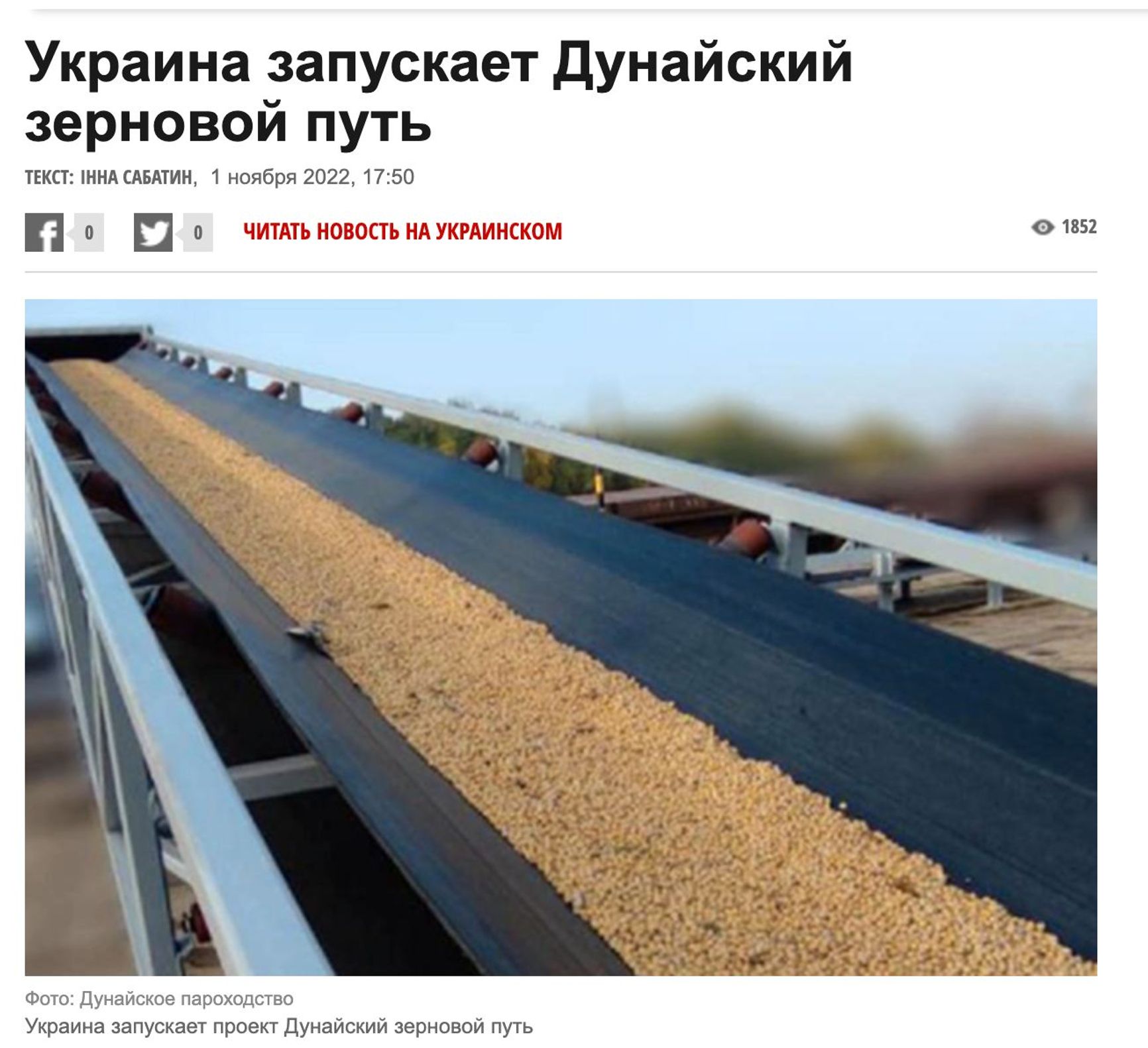
“Ukraine launches Danube grain route”
“After signing the grain initiative, the first ship with agro-products left Odesa in August 2022. The initiative gained momentum as there was no similar situation in the world before. By October 2022, they reached a maximum of 4.2 million tons from the three ports of Greater Odesa, but then Russia started systematically delaying [the initiative] and making it more difficult [to execute].
Inspections were carried out extremely poorly, for long periods of time, and there were few of them. Irrelevant factors were cited. For some reason Russia began to check not only the holds, but also began to take an interest in the equipment of the ships, their stocks and other completely irrelevant issues. The inspections lasted for hours, and inspection crews refused to work more than until three o'clock in the afternoon, citing alleged internal labor laws.
In November 2022, the Russian Federation began to systematically impede and delay the passage of ships. In the spring of 2023 – in May and June – they inspected 2-3 ships a day for all three ports. We were underperforming, and the world was missing tens of millions of tons of agricultural cargoes ready for shipment. Since April 26, Russia stopped registering and inspecting ships altogether, and since June 26, Russia stopped accepting all applications.The last ship with grain left the port of Odesa either yesterday or the day before yesterday, and currently, there are no more ships. While it has only been reported in the media now, the Russian Federation intentionally complicated the situation a long time ago. As of today, the grain initiative is no longer operational.”
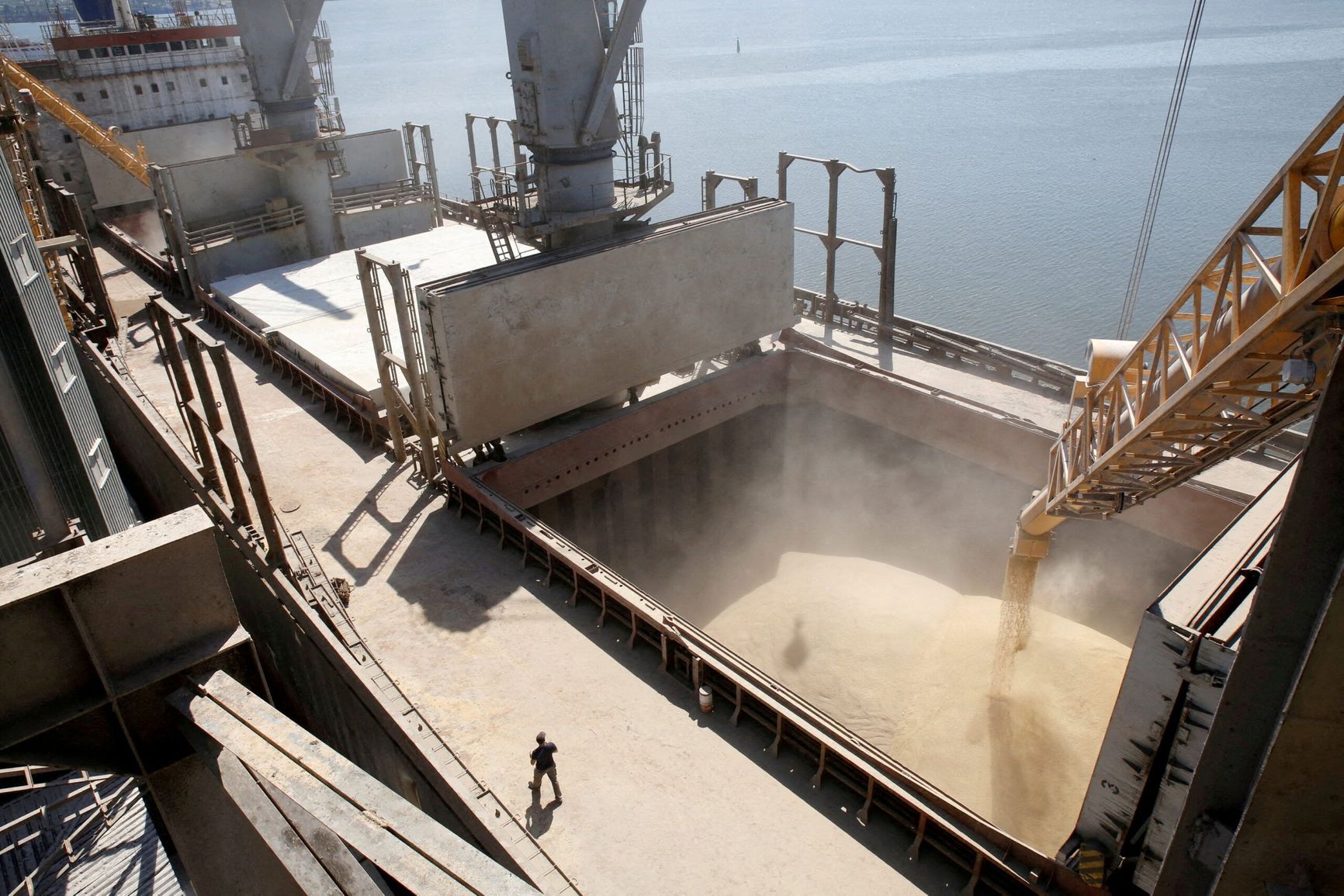
“Despite our efforts to develop the Danube cluster and region, the depth there is limited to 7.2, restricting the size of vessels to only small ones of 7-8 thousand tons, known as coasters. Delivery to the ports mainly relies on motor transport, with tens of thousands of trucks moving along Ukrainian roads. Even if we cannot maintain the high level of unloading through three ports, road transport restrictions still apply. For instance, loading one ship with over 100 thousand tons in the Southern port takes three days. 100 thousand tons means five thousand trucks, five thousand drivers and five thousand sets of documents that need to be unloaded.
When you translate that amount of tons into these small vessels, it amounts to dozens of ships. Fifteen small ships are equal to one large ship. Moreover, these coaster ships primarily go to ports in Turkey and northern Africa. They are not suitable for long-distance destinations like other countries in Africa or Asia that require Ukrainian food. To work at full capacity, we need to load heavy bulk carriers. Without unblocking the large Black Sea ports that were part of the grain initiative, it’s very difficult to imagine that we’ll return to working at full capacity.”
Barinov clarified that the impact of Russia's decision extends beyond Ukraine's agriculture; other countries could also face starvation if the grain deal is indeed canceled.
“Last time, we faced a similar situation for six months but managed to resume exports in just a week. This was possible because we consistently maintained our port facilities in good condition, we didn’t fire anyone, and our people continued to work diligently. That’s why our strategy remains the same now.
The further development of events will be influenced more by politics and military aspects. We hope that global common sense will prevail over the blackmail of one country. This is not just about Ukraine's agriculture or the port industry, it’s about world hunger. Half of the UN World Food Program, which buys agro-products for poor countries, depends on Ukraine – 50% of its products are bought in Ukraine. As soon as Ukraine left the agricultural market, prices skyrocketed.
While a resident of Europe or the United States might notice a price increase in sunflower oil, someone in Ethiopia or Somalia might struggle to afford any food at all. It is monstrous that free navigation is being obstructed in our time. This should be ensured by all conventions and international agreements. What corridors? What deals? The Black Sea is a free international sea, there are dozens of countries along the coast: Bulgaria, Romania, Turkey, Ukraine, Georgia. How can you prevent free navigation and block providing the world with everything it needs? This is just another monstrous manifestation from the Russian Federation.”
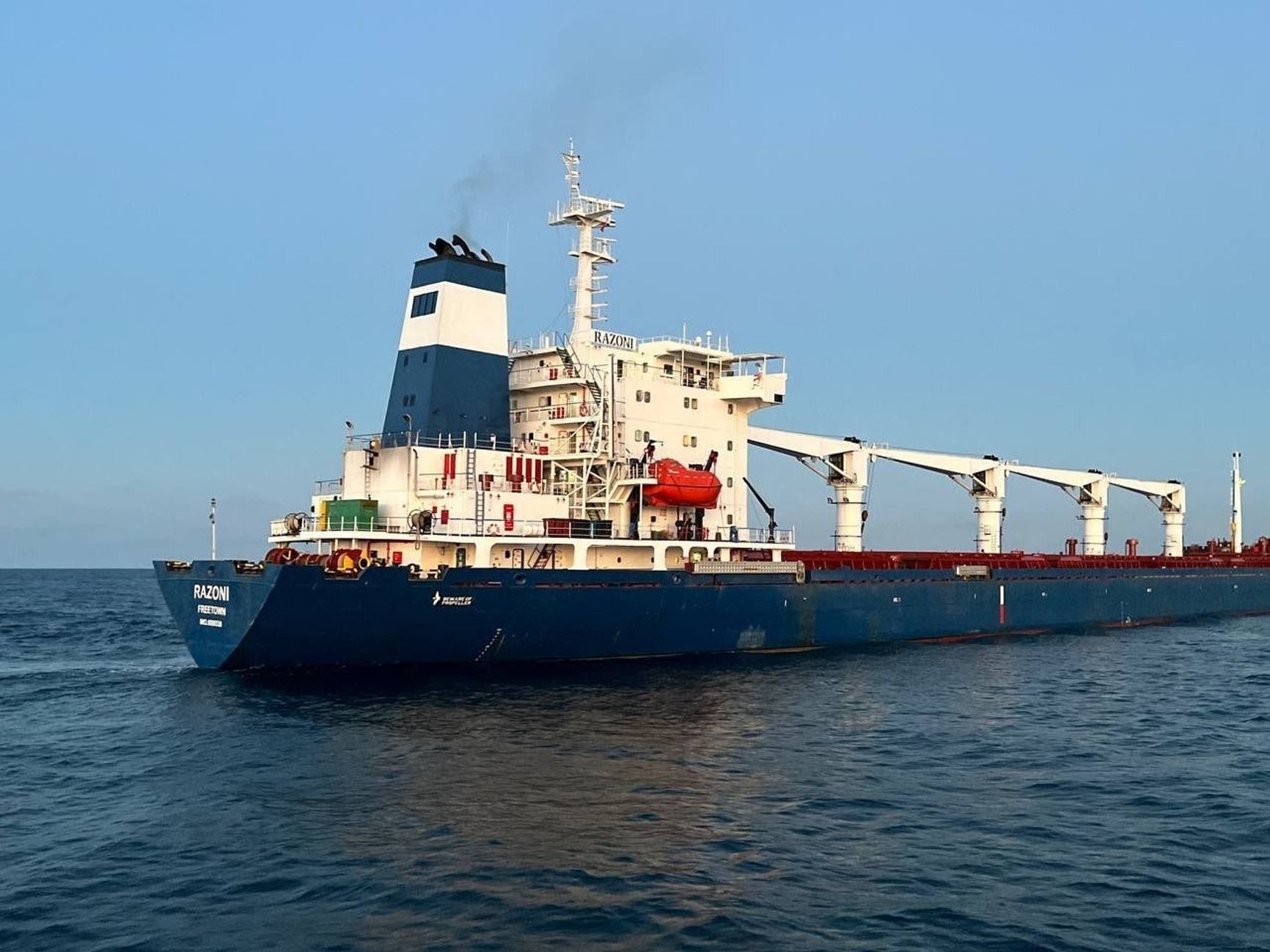
According to a representative of a Ukrainian grain trader who spoke to The Insider on condition of anonymity, Ukrainian grain is currently being exported from small ports. However, Russia has been blocking access to the big grain corridor since July.
“Ukrainian grain is already being exported from the ports. However, although the ‘grain corridor’ is open – Russia has not let [Ukraine] use the corridor since July. There is a tripartite commission involving Turkey, Ukraine, and Russia, but Russia has been uncooperative, causing delays for ships waiting to pass through the corridor. Ships can stay there for months. Russia's statement about suspending the deal has no effect on anything at all. They kept saying they wouldn't extend it, but they always did. The recent 3% increase in wheat prices on the stock exchange due to the Russian statement is likely to quickly subside.
Ukraine exports critically little product through small ports, the turnover is almost half as much. And what is not loaded is lying in wait all this time.
We can change the situation only when they start to let us into the ‘grain corridor.’ And if Russia withdraws from the deal now, then, theoretically, it should cancel its commission, and then we can ignore them altogether. Then to unload [their cargo], the ships will have to go with guards and military – the guards will be ours, the Ukrainian army.”
On July 17, Kremlin spokesman Dmitry Peskov announced that Russia's participation in the «grain deal» had been stopped. This decision was allegedly made prior to the attack on the Crimean bridge on the night of July 17, and Peskov claimed that the terrorist attack would not affect the grain deal. However, after the bridge explosion, the speaker of the Operational Command “South” of the Armed Forces of Ukraine, Natalia Humeniuk, suggested that the incident might have been a Russian provocation amid the completion of the “grain deal.”
This isn't the first time Russia suspended its participation in the “grain deal.» In October 2022, Russian President Vladimir Putin cited Kyiv's alleged use of the “grain corridor” to strike ships in Sevastopol as the reason for the stoppage. Putin then held phone talks with Turkish President Recep Tayyip Erdogan and outlined two additional conditions for Russia's return to the deal: an investigation into the attack on the Black Sea Fleet ships in Sevastopol, and guarantees from Kyiv that the humanitarian corridor would not be used for military purposes. However, Turkey affirmed that their dry cargo ships would continue to export food from Ukraine, and Russia's withdrawal from the deal wouldn't affect grain transportation. Surprisingly, just three days after the suspension, on November 2, 2022, Russia's Defense Ministry reported the country’s return to the deal, stating they received “written guarantees from Ukraine” regarding the non-military use of the “grain corridor.”